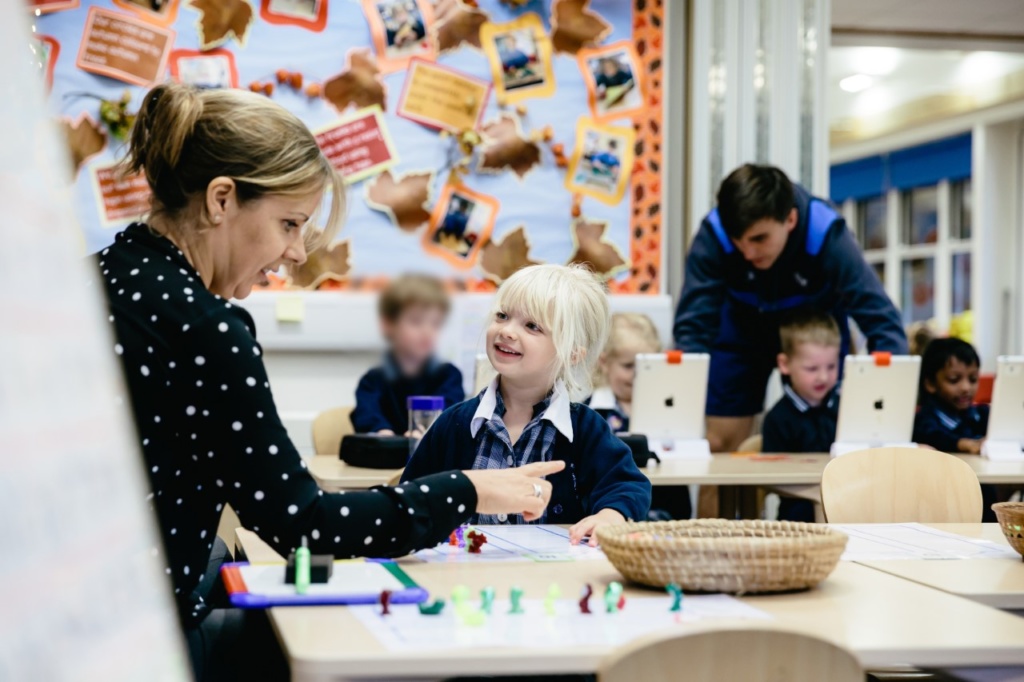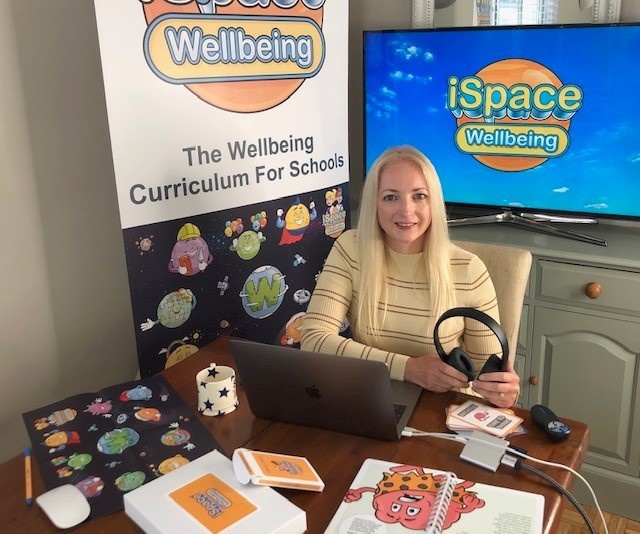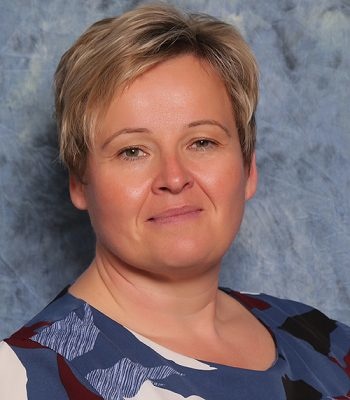
With 25 years of experience in child development and physical and mental health, I felt that the time was right for a step-change in how we support children’s mental health and wellbeing in schools. School days can be the best days of your life but they are certainly full of ups and downs.
That’s totally normal. I firmly believe that the key to enabling children to thrive in school is helping them to see that everyone needs help sometimes and it’s ok to ask for it. Giving children the tools to know who and how to ask for help is vital and we must empower them with a common language, so they can identify what they’re feeling and how to express themselves in a way that is understood by their peers, teachers and parents.
A framework for conversations
Evidence suggests that schools, teachers and children need help. All of these groups need to feel that they are being supported through the uncertainties that we are now facing, they need to understand that it’s perfectly natural to feel anxious and worried and, most importantly, they must know who and how to ask for help.
Delivered through the PHSE timetable, the iSpace Wellbeing and #iWonder Curriculums enable a whole school approach to mental health and wellbeing. The evidence-based curriculums provide an age appropriate framework for mental health conversations across KS1, KS2 and KS3 and are designed to make learning about mental health a fun and engaging experience.
The Wellbeing Galaxy
The curriculum starts in KS1, with stories that introduce children to characters such as Dunican (Dun ‘I can’) and Niam (N ‘I am’), who live in a Wellbeing Galaxy on the Planet Wellbeing and who learn about their own and other’s thoughts, behaviour and feelings. Their names reinforce some of the core principles of the iSpace Wellbeing curriculum, and help pupils explore topics like ‘who am I?’ and ‘who can I be?’.
The curriculum helps children to understand how their brains work, how to identify and discuss their thoughts, feelings and behaviours and to reflect on important early lessons like sharing and friendship, anti-bullying, physical and emotional health, the environment and diversity in our community. In KS2 Dunican and Niam grow and ‘travel’ across the Wellbeing Galaxy, which consists of 10 wellbeing themed planets. Throughout their adventures they collect ‘backpack’ tools and other resources to support the development of healthy relationships, character, emotional intelligence, resilience, life skills and wellbeing.
These engaging characters and space-based missions help schools to equip children with the tools and language to understand each other better; identify the resources that can support them to feel healthy and strong and be their best, and to know who and how to ask for help.
Additional iSpace Wellbeing resources such as videos, music and Virtual Reality exercises build engagement and encourage active learning, a mindfulness approach, and are included in the curriculum tools.
Advanced life skills
The KS3 #iWonder curriculum focuses on advanced life skills such as managing thoughts, emotions and behaviour, understanding risk in a digital world, problem solving and decisionmaking. It is designed to help older children to navigate their way through life’s ups and downs, learn from failure and build resilience and character.
The #iWonder curriculum is based on a compass tool that helps children to navigate their wellbeing landscape and equip and resource themselves with the knowledge and skills to live life well. There is also a journal tool that helps them to securely document their steady progress and development, as they continue through the curriculum. What resources are provided?

The curriculums are continually evolving and additional lesson plans and updates are added regularly. Currently there are 20 lessons and supporting slides for KS1, 84 lessons and supporting slides for KS2 and 40 lessons and supporting slides for KS3. Lesson plans can be built around stories, challenges, activities and discussions and are purposely designed to empower children to learn about mental health and wellbeing in a way that will stay with them for the long-term.
Every lesson plan contains clear Learning Objectives, an outline of the Materials and Resources that will be used and where to find them, and a helpful summary of Key Words that should be used within the lesson. The lessons themselves are divided into Teacher Knowledge (background information and suggested questions), Teacher Action (steps like introducing the lesson aim, breaking the class into small discussion groups or reading a particular story) and Active Learning (children respond to questions, work in pairs or take part in a challenge).
Attention training
There are also optional Attention Training exercises that can be used at the start and end of the lesson to help the children relax, as well as Success Criteria, which allow pupils and teachers to reflect on what has been learned. Each lesson plan comes with a range of resources to use or print, including character and planet cards, activities, worksheets and colouring sheets.
Schools and parents can also buy toolkits, which include a manual, conversation map and card deck, to provide supporting tools for conversations and group work, and an additional reference guide that can be used by teachers in the classroom or parents at home. The curriculum and supporting toolkit includes everything a teacher could need to run successful lessons on a range of mental health and wellbeing-related topics.
What training is provided? Each school is fully onboarded to iSpace Wellbeing with a half day training programme for all staff who are involved in teaching. This can be delivered in-person or online via Zoom and there are a range of online video tutorials and resources too. As well as learning about the curriculum itself and the resources available, the training also involves discussing case studies and helps staff to think about ways to support children that are struggling. will have to complete before they embark on delivering the curriculum to pupils.
How effective is it?
The iSpace Wellbeing Curriculums are now being launched nationwide after hugely successful pilots in 11 schools. Our pioneering schools continue to subscribe annually and they have told us that the language and skills learned through the curriculum have helped pupils to manage their emotions more effectively, enabled them to embrace subjects like puberty without embarrassment and resulted in them being more understanding of each other’s behaviour, due to their shared wellbeing knowledge.
The feedback included reports that the curriculum has enabled teachers to get to know pupils better, saved them time from preparing bespoke lessons and equipped them with tools to manage their own mental health and wellbeing. Parents also reported that they found it reassuring to have an understanding of the curriculum, which creates a shared language between schools, children and parents.
We were delighted to see two of our pioneering pilot schools – Cumnor House and Dulwich Prep Cranbrook School – shortlisted in the Wellbeing category at the Independent School of the Year Awards 2020. At a time when research from the Chartered College of Teaching² shows that teachers want additional training and guidance to support pupils with their wellbeing, we hope to equip more schools with the framework, understanding, resources and confidence to deliver an effective whole school approach to mental health and wellbeing support.
Case study
Nicola Harmer, Headmistress, Brentfield Primary School “I was delighted that the government made it a compulsory element of the PSHE programme of study. I have felt for a long time that there has been insufficient focus on our children’s mental wellbeing in the PSHE primary curriculum. In school we have noticed an increasing number of children requiring additional emotional support and this was similarly reflected in the growing number of reports highlighting the poor mental health of many children in this country.
This was why we were so keen to use iSPACE Wellbeing as it put our children’s mental wellbeing at the heart of our PSHE learning. “I am proud that we are pioneering iSPACE Wellbeing because I know that we are anticipating the needs of our children as they head out into the wider world. It provides the language of feelings so children are able to describe their emotions with greater ease.

In addition it provides a “toolkit” of things that our children (and teachers!) can actively use when they find themselves struggling for whatever reason. Everyone, from teachers to lunchtime supervisors, uses the language to help the children identify how they are feeling and what they need to help themselves. I feel particularly proud when I hear children say things like: ”I was feeling really angry so I stopped, paused and calmed everything down.”
“The whole school is using a common language to describe their emotions. Children are able to identify tools that can help them when they feel angry or overwhelmed. Sometimes, when I plan assemblies linked to iSPACE topics, I feel the messages resonating for myself as much as for the children – so I know with absolute certainty that it is going to be relevant to them.
Register for free
No Credit Card required
- Register for free
- Free TeachingTimes Report every month